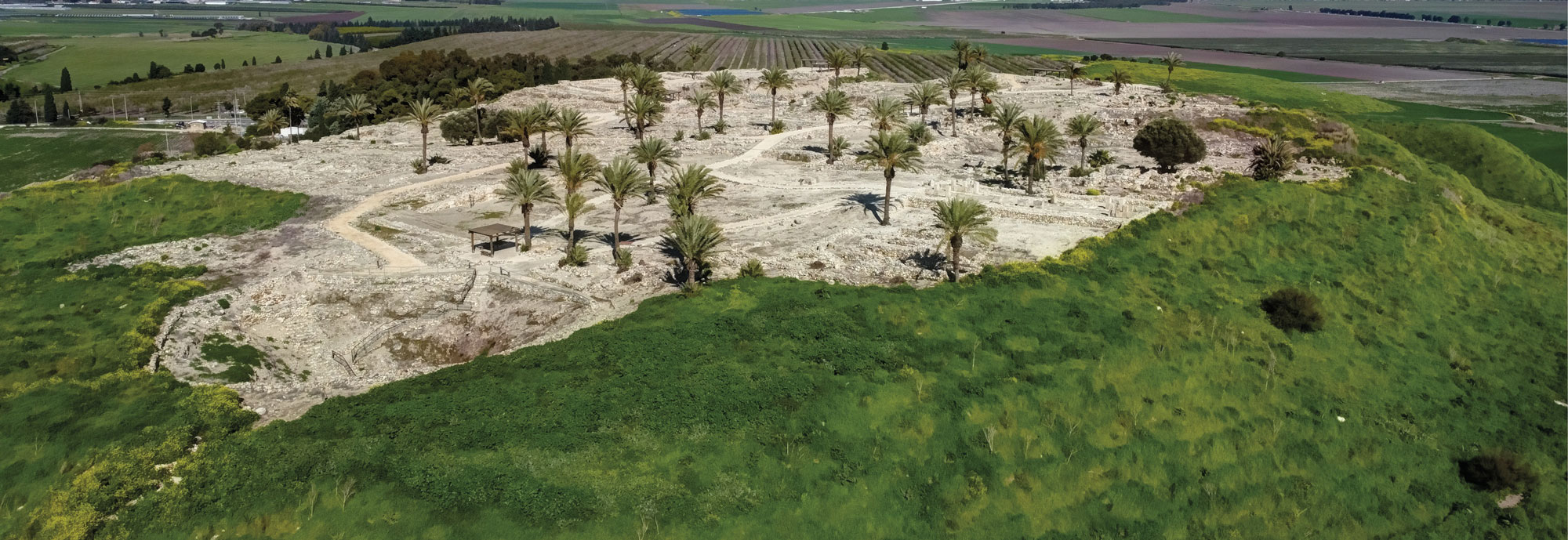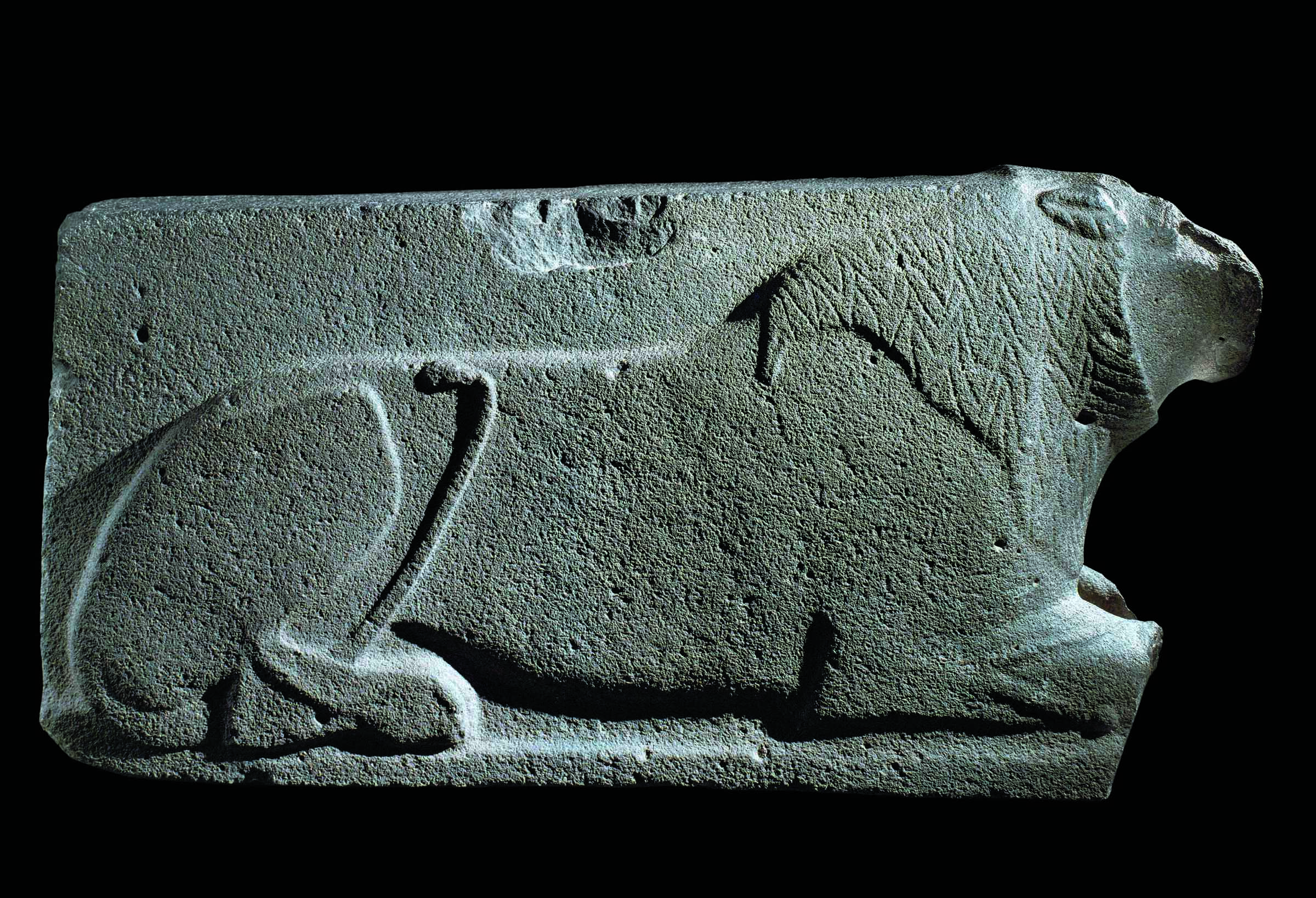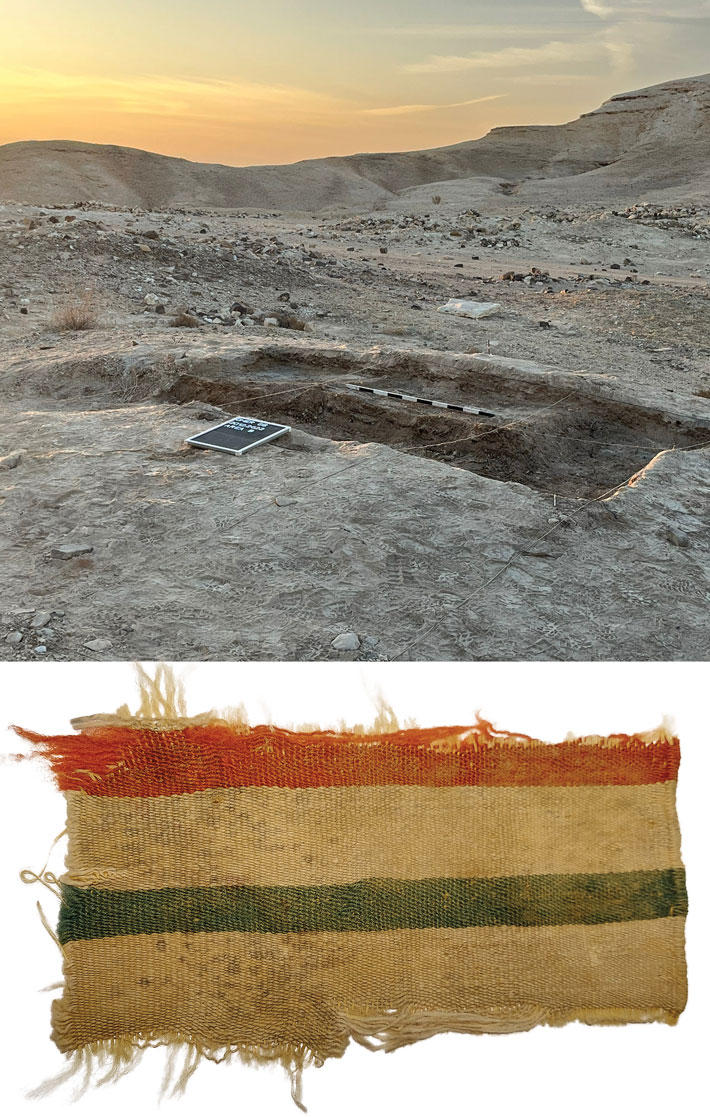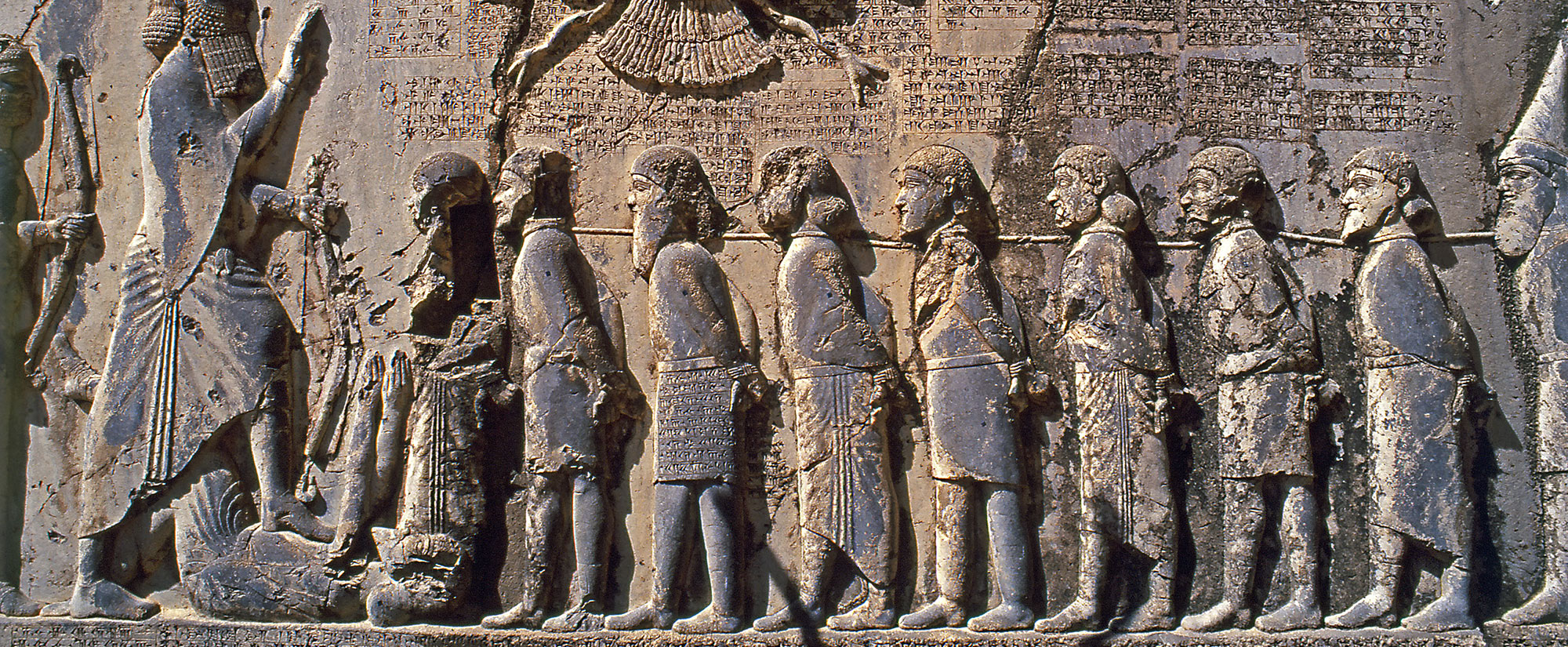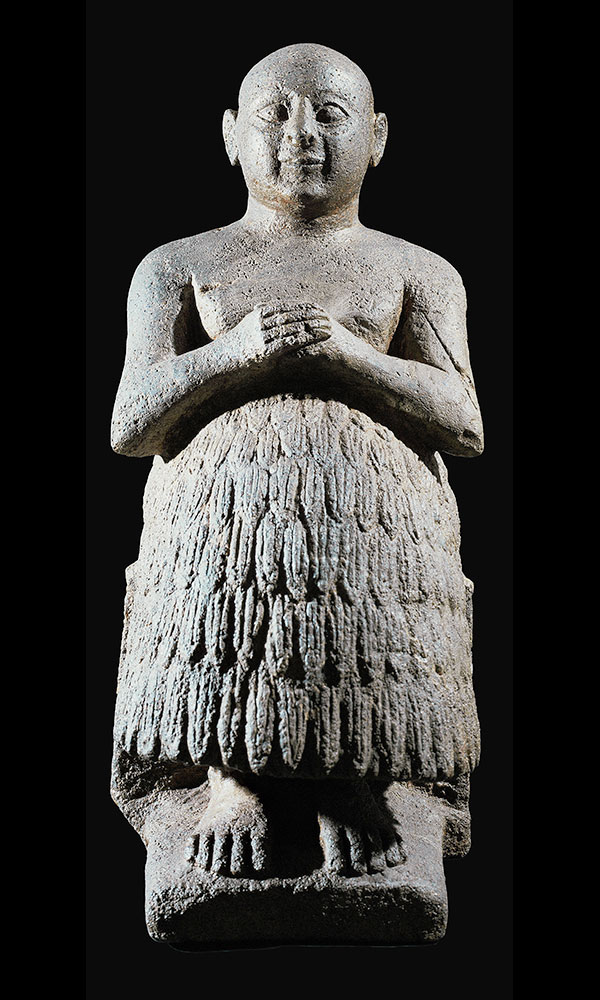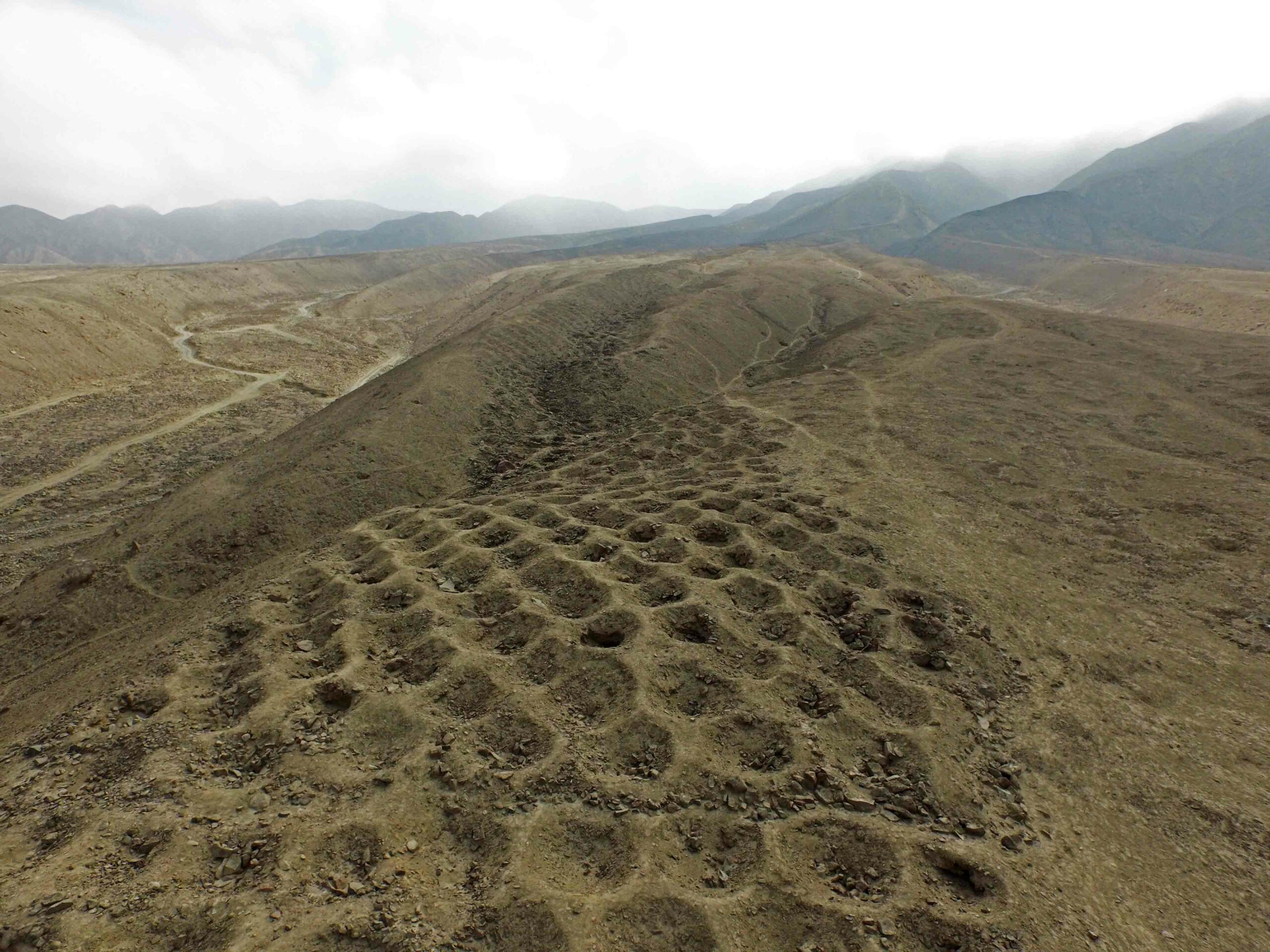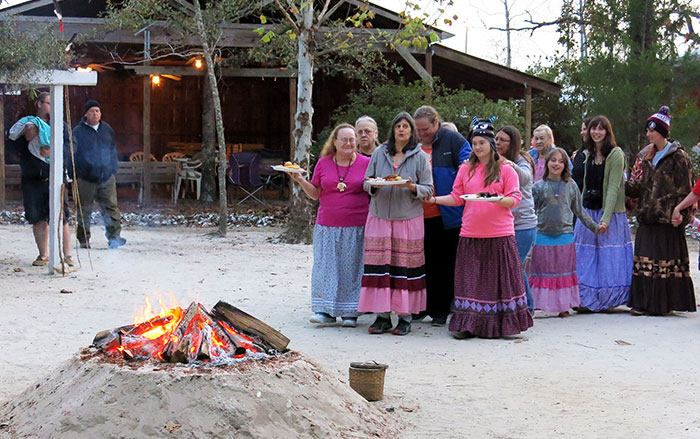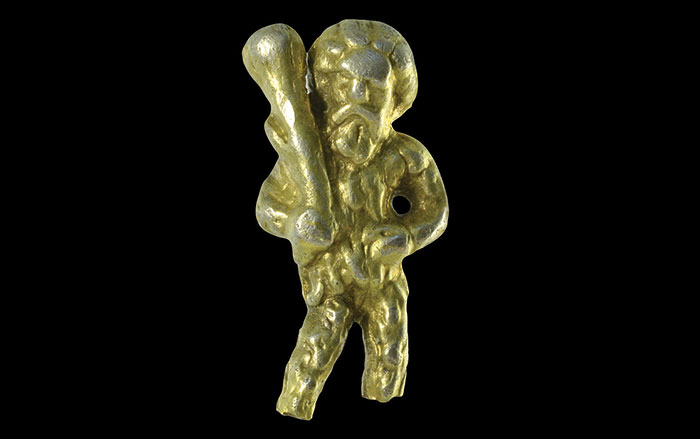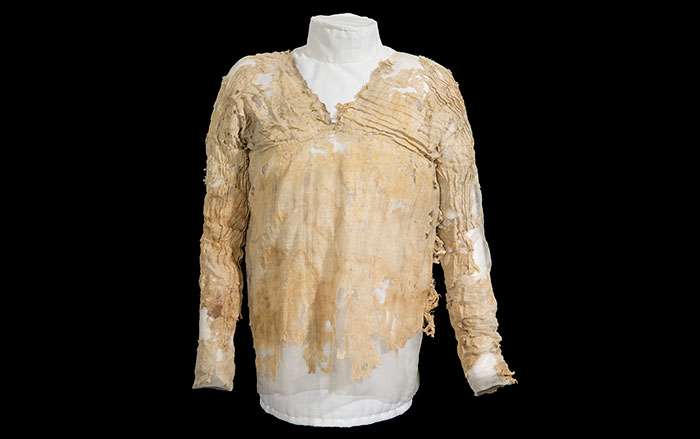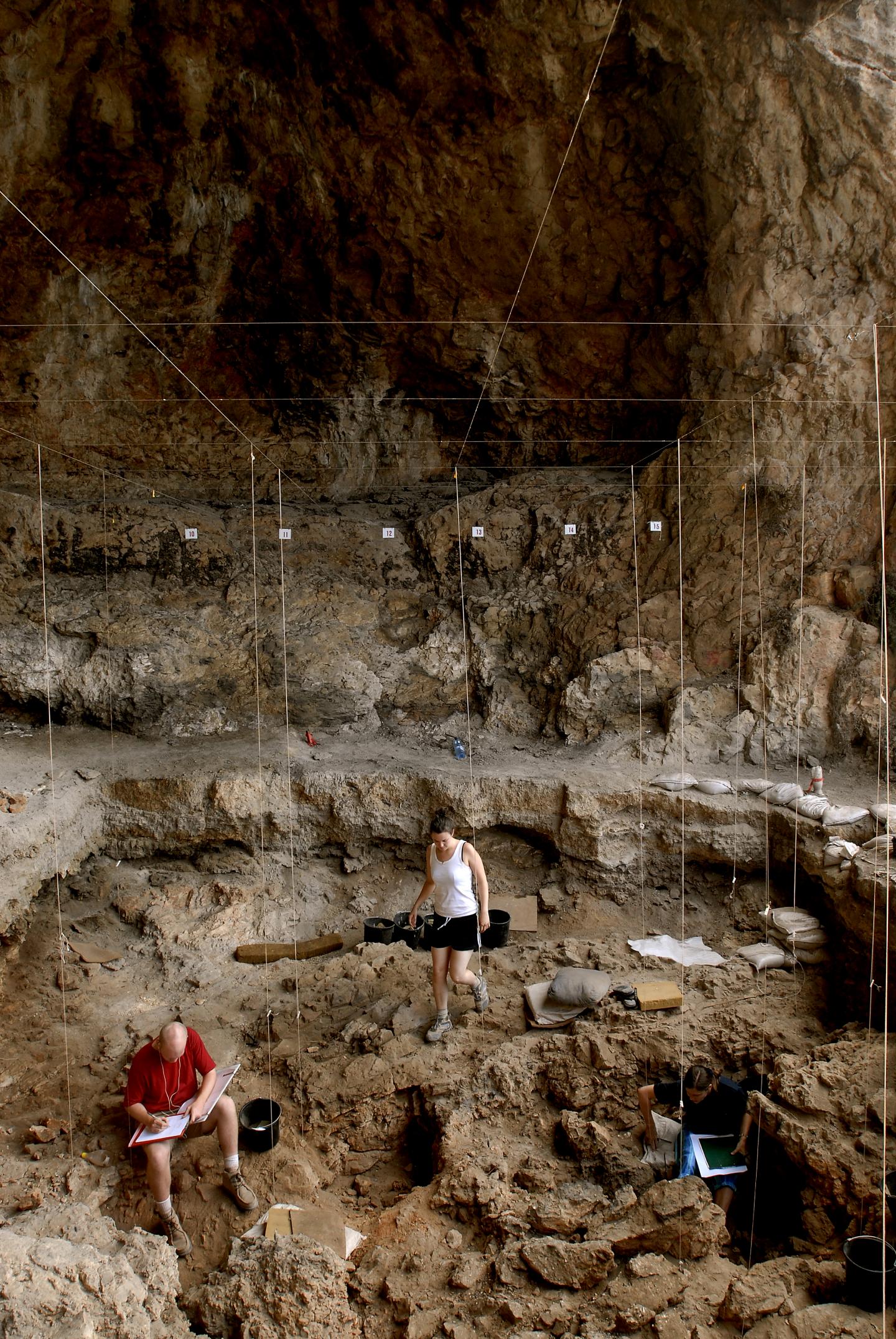
JERUSALEM, ISRAEL—Archaeologists have reconstructed the possible funeral rites of a 45-year-old woman thought to have been a shaman in northern Israel some 12,000 years ago. Leore Grosman of the Hebrew University of Jerusalem and Natalie Munro of the University of Connecticut say the oval grave was first dug out of the bedrock floor of a cave called Hilazon Tachtit, and was then lined with layers of mud, limestone, and other sediments. Shells, gazelle horn cores, and tortoise carapaces were added and covered with a layer of ash and stone flakes. The body was placed in a squatting position, with tortoise shells propping the head and pelvis against the walls of the grave. Animal bones and additional tortoise shells, probably the remains of a ritual meal, were placed around and on top of the body, which was then covered with limestone blocks. The researchers think the grave was then filled with garbage from the funeral feast, before a large triangular block of limestone was finally placed over the grave. “The significant preplanning implies that there was a defined ‘to do’ list, and a working plan of ritual actions and their order,” Grosman said in a Live Science report. For more, go to "12,000-Year-Old Village Unearthed in Israel."


